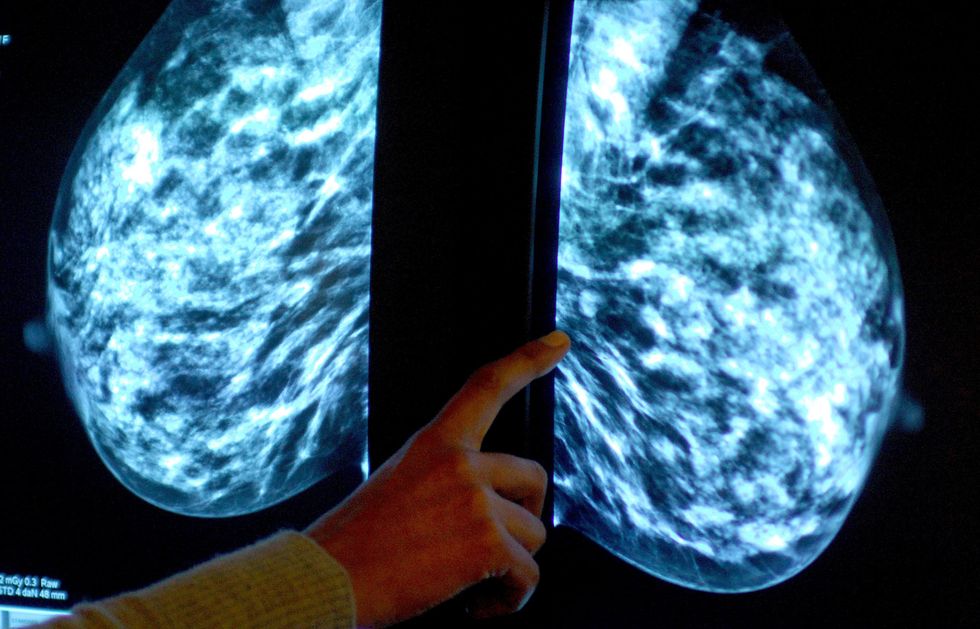Breast cancer breakthrough: Groundbreaking daily tablet could soon be made available on NHS
PA
The drug will be available to patients with advanced forms of the disease
Don't Miss
Most Read
Trending on GB News
A groundbreaking once-daily tablet for advanced breast cancer will be made available on the NHS following a significant policy reversal.
The drug elacestrant has been approved by the National Institute for Health and Care Excellence (Nice) after initially being rejected in October due to uncertainty in the evidence.
More than 1,100 women with advanced breast cancer will now be eligible for the treatment, which has shown promising results in delaying disease progression by up to six months compared to standard treatments.
Elacestrant is the first targeted treatment available on the NHS for advanced breast cancer with mutations in the oestrogen receptor gene, known as ESR1.
Up to half of advanced breast cancers treated with hormone therapy develop these ESR1 mutations, which can cause existing treatments to stop working.
The drug will be available to patients whose cancer has worsened after at least a year of treatment with hormone therapy and CDK4/6 inhibitor.
 Breast cancer breakthrough: Groundbreaking daily tablet could soon be made available on NHSPA
Breast cancer breakthrough: Groundbreaking daily tablet could soon be made available on NHSPAGenetic testing will be required to determine which patients are eligible for the treatment.
Elacestrant works as a type of hormone therapy specifically designed for cases where standard treatments have become ineffective.
The drug functions by binding to and degrading oestrogen receptors, effectively blocking oestrogen's ability to bind to breast cancer cells.
This mechanism prevents oestrogen-dependent cancer cells from growing and spreading.
LATEST DEVELOPMENTS:
 An image of cancer cellsGETTY
An image of cancer cellsGETTYThe treatment targets a specific challenge in advanced breast cancer, where up to half of cases treated with hormone therapy develop mutations in the oestrogen receptor gene, causing conventional treatments to fail.
Clinical trials have demonstrated significant improvements in patient outcomes with elacestrant compared to standard treatments.
Patients receiving elacestrant showed an average delay in disease progression of 8.6 months.
In contrast, those on standard treatment experienced disease progression after just 1.9 months.
Nice experts noted that patients with ESR1 mutations typically face worse survival rates and faster disease progression than those without the mutation.
 The pill will be offered to at risk women GETTY
The pill will be offered to at risk women GETTYThe treatment offers hope for patients who prioritise extending life and maintaining quality of life while delaying the need for chemotherapy.
Claire Rowney, chief executive of Breast Cancer Now, welcomed the decision, calling it "fantastic news" for patients.
"Following its provisional rejection in October, crucially, today's decision means elacestrant will bring eligible patients hope of more precious time before their condition progresses to do the things that matter most to them, compared to treatments currently available," she said.
Rowney emphasised the importance of implementing testing systems quickly to ensure there are no delays in patient access to the treatment.
Helen Knight, director of medicines evaluation at Nice, highlighted the significant impact of ESR1 mutations on breast cancer patients.
"The committee heard from the clinical and patient experts that people whose advanced breast cancer has an ESR1 mutation tend to have worse survival than people whose cancer doesn't have this mutation," she said.
Knight emphasised that elacestrant addresses key patient priorities, stating: "Elacestrant is a promising new treatment with the potential to address these priorities. We're therefore pleased to be able to recommend it as a good use of NHS resources and value for money for taxpayers."
Peter Clark from NHS England's cancer drugs fund celebrated the approval's impact on patients.
"It is fantastic news that hundreds of women living with secondary breast cancer will start receiving this treatment on the NHS soon, which could offer them precious additional time with their families and loved ones," he said.
Clark noted this approval's historic significance, stating: "This is the latest example of the NHS making life-extending, Nice-approved treatments available to patients with breast cancer, and the first targeted treatment for patients with advanced breast cancer that has this type of mutation."








